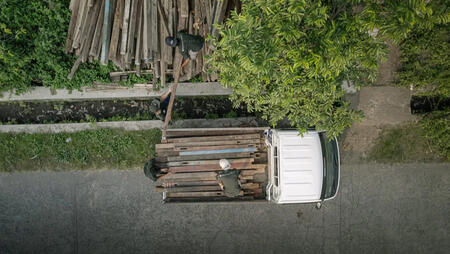Sustainable Development In Bali
Sustainable real estate development is rapidly becoming a priority in Bali, a region renowned for its natural beauty and cultural heritage. As Bali continues to experience significant growth in tourism and real estate - especially after the Covid pandemic, there is an increasing awareness of the need to protect the island’s environment and sustainable practices as real estate development has endeavored a significant boom. Sustainable development offers a way to balance economic growth with ecological preservation, ensuring that future generations can continue to enjoy Bali’s lush landscapes and vibrant biodiversity.Incorporating sustainable practices into real estate means designing and building in ways that reduce environmental impact while maximizing resource efficiency. Whether it’s using renewable materials like bamboo and reclaimed wood or designing energy-efficient homes that harness Bali’s abundant sunlight, sustainable real estate focuses on creating long-term benefits for both the environment and local communities. As Bali attracts more eco-conscious travelers and investors, sustainable development is emerging as a critical approach to preserving the island's unique charm while promoting responsible growth.
The Impact of Sustainable Real Estate Development In Bali

(Image credit Nusantara Lifestyle - sustainable Bali furniture manufacturing)
The Impact of Sustainable Real Estate DevelopmentSustainable real estate development in Bali has far-reaching impacts, benefiting not only the environment but also the local economy and society as a whole. By adopting eco-friendly construction practices, sustainable development aims to create a lasting positive influence on multiple fronts. Here are the main key areas of impact:Environmental Impact:- Reduced Carbon Footprint: Sustainable buildings use energy-efficient designs, renewable materials, and low-impact construction processes, leading to a significant reduction in greenhouse gas emissions.- Conservation of Natural Resources: Through the use of reclaimed wood, bamboo, and other renewable materials, sustainable development helps preserve Bali’s forests and ecosystems.- Waste Reduction: By incorporating recycled materials and reducing construction waste, sustainable real estate minimizes the amount of waste sent to landfills, helping to protect Bali's environment from pollution.Economic Impact:- Long-Term Cost Savings: Energy-efficient designs reduce electricity consumption, lowering long-term operational costs for homeowners and businesses.- Job Creation and Local Economy: Sustainable projects often prioritize the use of locally sourced materials and labor, which supports the local economy and creates job opportunities for artisans and builders.- Increased Property Value: Eco-friendly properties are increasingly in demand among environmentally conscious buyers and investors, making sustainable real estate a sound financial investment.Social and Cultural Impact:- Healthier Living Spaces: Sustainable buildings often incorporate natural ventilation, non-toxic materials, and green spaces, contributing to healthier living environments for residents.- Preservation of Bali’s Cultural Heritage: Sustainable real estate aligns with traditional Balinese values of living in harmony with nature, fostering a sense of cultural pride and continuity.- Promotion of Eco-Tourism: Bali’s reputation as an eco-friendly destination is strengthened by sustainable developments, attracting tourists who prioritize responsible travel and supporting a sustainable tourism industry.
Sustainable Building Certifications in Bali
Sustainable building certifications are essential for ensuring that development projects in Bali meet internationally recognized environmental and sustainability standards. One of the most prominent certifications is LEED (Leadership in Energy and Environmental Design), which evaluates buildings on factors like energy efficiency, water conservation, and indoor environmental quality. Another option gaining traction in Indonesia is EDGE (Excellence in Design for Greater Efficiencies), a certification designed specifically for emerging markets, focusing on resource efficiency in energy, water, and materials.In addition to these global certifications, Bali also has local initiatives like GREENSHIP, Indonesia’s own green building certification program. GREENSHIP assesses projects based on categories such as land use, water conservation, and building materials, ensuring they meet the specific environmental challenges of the region. By obtaining these certifications, developers and builders in Bali demonstrate a commitment to sustainability, making their projects more attractive to eco-conscious buyers and investors while contributing to the island’s environmental preservation efforts.
Sustainable Building Processes and Materials
Sustainable building in Bali starts with eco-friendly design, like passive cooling to reduce air conditioning needs and maximizing natural light with large windows or skylights. Techniques such as rainwater harvesting and solar energy further reduce environmental impact and lower operational costs.For materials, sustainable builders use locally sourced, renewable, and recycled resources. Popular choices include bamboo for its fast growth and strength, and reclaimed teak, which reduces deforestation while maintaining durability and aesthetic appeal. Recycled concrete and volcanic stone are also used, minimizing waste and supporting Bali’s natural ecosystems.From start to finish, the process involves working with contractors committed to sustainability, from selecting local suppliers of renewable materials to employing energy-efficient construction methods. By ensuring sustainable practices at every stage—design, sourcing, and implementation—the project maintains a low environmental footprint while supporting Bali’s economy and ecosystem.
RESOURCES
- Indonesian Green Building Council (GBC Indonesia) - The official body for the GREENSHIP certification and other green building initiatives in Indonesia. https://www.gbcindonesia.org- EDGE Certification (International Finance Corporation) – Focused on sustainable building certification for emerging markets like Indonesia, EDGE is a globally recognized resource for energy-efficient building - https://edgebuildings.com/- Ministry of Environment and Forestry of the Republic of Indonesia – Provides information on Indonesia’s national efforts toward sustainability and environmental protection, including regulations related to sustainable development - https://www.balihkb.comPARTNER LINKS
Interesting furniture inspirations
Indonesian interior design inspirations
https://nextlevelfurniture.wixsite.com/home
https://6717880a71c3d.site123.me/
https://teakwoodcraft.bloggersdelight.dk/
https://design-by-bali.mywebselfsite.net/